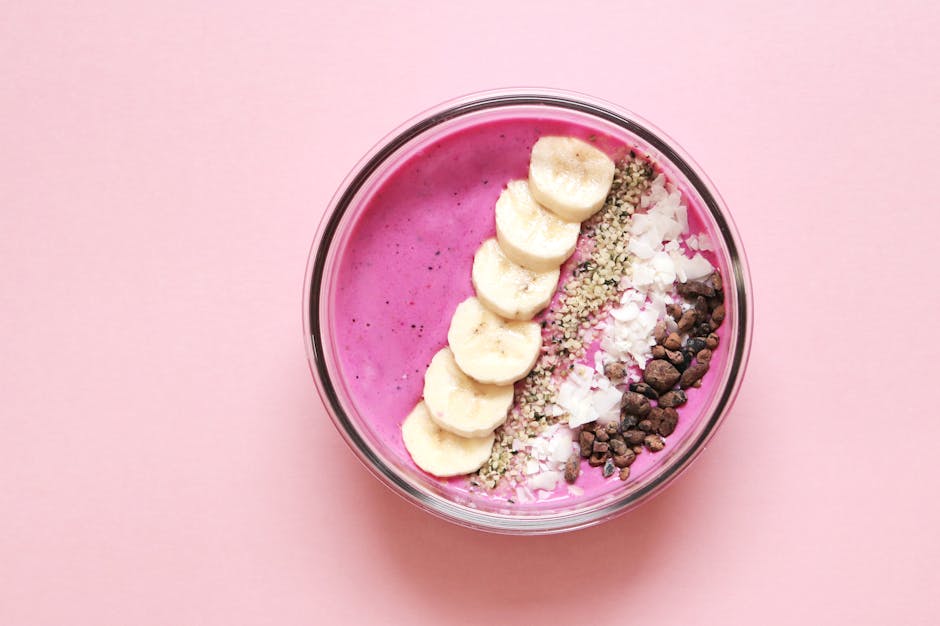
“`html
Plant-Based Foods That Boost Energy
Introduction
In our fast-paced world, maintaining high energy levels is essential for productivity and overall well-being. With the rise of plant-based diets, many individuals are turning to plant-based foods as a natural solution to combat fatigue and boost energy. However, not all plant-based foods are created equal when it comes to energizing properties. This blog delves into the specific plant-based foods that can help enhance your energy levels, shedding light on why they matter and addressing common energy-related problems.
Understanding the Concept
Energy in our bodies primarily comes from the food we consume. The macronutrients—carbohydrates, proteins, and fats—are crucial in providing the necessary fuel. Plant-based foods offer a rich source of these macronutrients, along with vitamins, minerals, and antioxidants that enhance energy metabolism.
Statistics show that nearly 80% of Americans report feeling fatigued at some point in their lives, often attributed to poor dietary choices (source: CDC). A balanced intake of plant-based foods can combat this fatigue by providing sustained energy release rather than the quick spikes and drops associated with processed foods.
Real-World Examples
To illustrate the positive impact of plant-based foods on energy levels, consider the following two scenarios:
- Case Study 1: Sarah’s Transition to Plant-Based
Sarah, a 28-year-old marketing professional, struggled with afternoon slumps. After switching to a plant-based diet rich in quinoa, lentils, and leafy greens, she noticed a significant increase in her energy levels. By replacing her usual lunch of a heavy sandwich with a quinoa salad, she experienced fewer energy crashes throughout the day. - Case Study 2: Mark’s Athletic Performance
Mark, a 35-year-old amateur runner, sought to enhance his performance. He incorporated energy-boosting plant foods like bananas, sweet potatoes, and chia seeds into his pre-race meals. As a result, he reported improved stamina and faster recovery times after races, attributing this to the nutrient density and slow-releasing carbohydrates found in these foods.
Benefits and Challenges
While the benefits of plant-based foods are extensive, it’s essential to consider both the advantages and challenges associated with this dietary approach:
- Benefits:
- Sustained Energy: Plant-based foods typically have a low glycemic index, leading to gradual energy release.
- Nutrient-Rich: They are packed with vitamins, minerals, and antioxidants that support overall health.
- Weight Management: Plant-based diets are often lower in calories, aiding in weight control without compromising energy levels.
- Reduced Fatigue: Many plant foods contain iron and B vitamins, crucial for energy production (source: NIH).
- Challenges:
- Nutrient Deficiency: Without careful planning, one may miss out on critical nutrients like B12 and Omega-3 fatty acids.
- Digestive Issues: Some individuals may experience bloating or discomfort when increasing fiber intake from plant foods.
- Accessibility: Depending on location, access to fresh produce can be limited.
Expert Opinions & References
Numerous nutritionists and health experts advocate for plant-based diets as a means to enhance energy levels. According to a study published in the Journal of Nutrition, individuals consuming a plant-based diet reported higher energy levels compared to their omnivorous counterparts.
Furthermore, the Harvard Health Publishing outlines that a plant-based diet can reduce the risk of chronic diseases, contributing to better long-term health and sustained energy levels. They emphasize foods like whole grains, fruits, vegetables, nuts, and legumes as part of a balanced diet.
FAQs
What are some quick plant-based snacks for energy?
Some great options include:
- Nut butter on whole-grain toast
- Fresh fruit like bananas or apples
- Trail mix with nuts and dried fruits
- Hummus with carrot or cucumber sticks
Can plant-based foods replace my morning coffee for energy?
While coffee provides a quick energy boost due to caffeine, certain plant-based foods like oats, chia seeds, and smoothies can provide lasting energy without the crash often associated with coffee. They supply complex carbohydrates and essential nutrients that fuel the body effectively.
How can I ensure I’m getting enough protein on a plant-based diet?
Incorporate a variety of protein sources such as:
- Legumes (beans, lentils, chickpeas)
- Quinoa and other whole grains
- Nuts and seeds
- Plant-based protein powders if needed
Are there any plant-based foods to avoid for better energy?
While most plant foods are beneficial, it’s wise to limit processed plant-based snacks that are high in sugar and unhealthy fats, as they can lead to energy crashes. Focus on whole foods for sustained energy levels.
Final Thoughts
Incorporating plant-based foods into your diet can lead to improved energy levels and overall health benefits. By understanding which foods are best for sustaining energy, you can make informed dietary choices that not only enhance your well-being but also contribute to a more vibrant lifestyle. Embrace the power of plants and discover the transformative effects they can have on your energy levels!
“`
https://images.pexels.com/photos/2173774/pexels-photo-2173774.jpeg?auto=compress&cs=tinysrgb&h=650&w=940